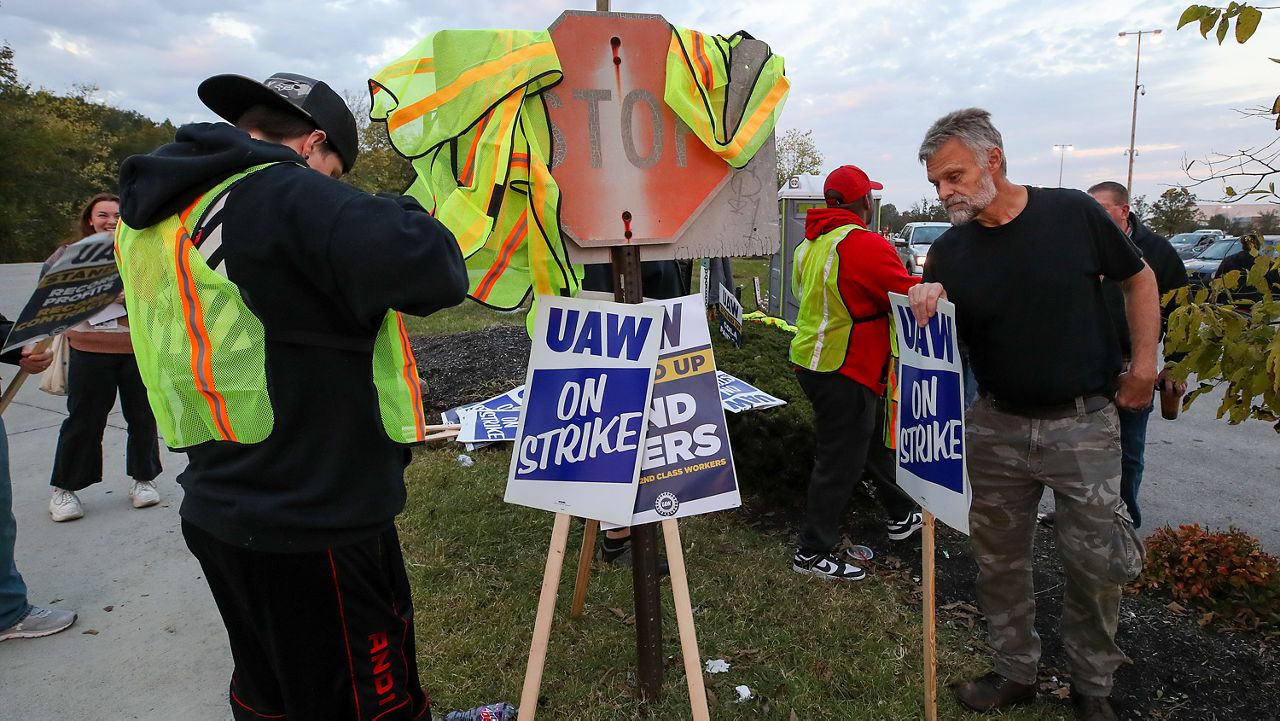The United Auto Workers (UAW) have issued a stark warning of a potential strike at Ford’s Kentucky Truck Plant, the automaker’s largest and most profitable facility. With negotiations at a standstill for over five months, the UAW has set a strike deadline of February 23, citing unresolved local contract issues affecting approximately 9,000 UAW Local 862 members.
Key Issues at Stake in Kentucky Truck Plant Strike
At the heart of the dispute are critical concerns regarding health and safety within the plant, including demands for minimum in-plant nurse staffing levels and the resolution of ergonomic issues. Additionally, the UAW opposes Ford’s alleged attempts to diminish skilled trades at the Kentucky Truck Plant, underscoring the significance of these issues in the ongoing negotiations.

Delays in Local Contract Negotiations
Despite the ratification of national contracts in 2023 with Ford and other major automakers, negotiations at the local level have faced significant hurdles. Local contracts, which address plant-specific issues, remain open for discussion, with 19 such agreements pending at Ford, including the one at the Kentucky Truck Plant. The protracted delay in reaching a resolution underscores the complexity of addressing plant-specific concerns within the broader framework of national agreements.
Response from Ford and UAW Leadership
Ford Motor Company expressed its commitment to resolving the impasse, stating its anticipation of reaching an agreement with UAW Local 862. However, tensions escalated following remarks by Ford CEO Jim Farley regarding potential adjustments to the company’s footprint in response to market dynamics and labor negotiations. UAW President Shawn Fain criticized Farley’s comments, suggesting a need for leadership that prioritizes American workers’ interests over cost-saving measures.
Union Stance and Potential Ramifications
Despite the discord between Ford’s management and UAW leadership, Local 862 President Todd Dunn affirmed the union’s determination to pursue strike action if necessary. While acknowledging the rarity of local contract strikes, Dunn emphasized the union’s readiness to leverage its collective bargaining power, citing last year’s successful strikes as a testament to their ability to influence negotiations.
Financial Considerations and Impact
The looming strike threat comes against the backdrop of Ford’s robust financial performance, with the Kentucky plant contributing significantly to the company’s revenue stream. However, the potential disruption resulting from a strike could have adverse financial implications for Ford, as evidenced by the substantial profit loss incurred during last year’s strikes.

As negotiations intensify and the strike deadline approaches, both Ford and the UAW face mounting pressure to reconcile their differences and avert a potentially costly and disruptive labor dispute. The outcome of these negotiations will not only impact the workforce at the Kentucky Truck Plant but also carry broader implications for the future of labor relations within the automotive industry.